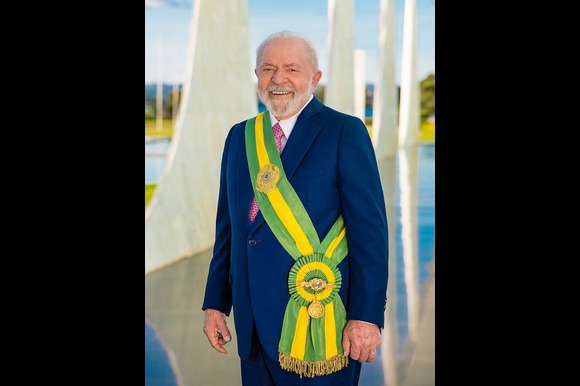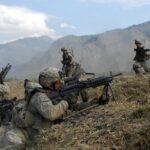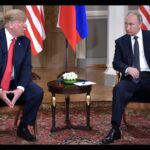Brasília, Brazil — The government of Brazilian President Luiz Inácio Lula da Silva has formally petitioned the World Trade Organization (WTO) to begin consultations regarding the steep tariffs recently imposed by the United States. The move comes as part of an effort to secure relief from punitive trade measures seen by many in Brazil as retaliation for the country’s ongoing prosecution of former far-right president Jair Bolsonaro.
According to sources within the Brazilian government who spoke on condition of anonymity to news outlets such as AFP and The Associated Press, the WTO petition was submitted on Wednesday. It represents the first official step in initiating a WTO trade dispute — a process often lengthy and complex but widely regarded as an essential mechanism for resolving international economic conflicts.
The United States, under the administration of former President Donald Trump, implemented a 50 percent tariff on Brazilian exports starting Wednesday. This marks the highest tariff rate Trump has levied against any country this August. India is expected to face a similar 50 percent tariff later in the month unless a last-minute agreement is reached.
Brazilian Vice President Geraldo Alckmin has estimated that nearly 35.9 percent of Brazil’s exports to the U.S. — roughly 4 percent of Brazil’s total global exports — will be impacted by the new tariffs, which are already causing widespread concern across industries dependent on U.S. trade.
Tariffs Tied to Bolsonaro Prosecution
The controversial tariffs appear to be directly linked to Brazil’s legal pursuit of Bolsonaro, a close political ally of Trump. On July 9, Trump issued a formal letter addressed to Lula and posted online, using it not only to announce the trade penalties but also to sharply criticize the Brazilian government for prosecuting Bolsonaro.
Calling the former Brazilian leader a “Highly Respected Leader throughout the World,” Trump lambasted the legal proceedings against him as “an international disgrace.” Bolsonaro, who lost the 2022 presidential election to Lula, has faced mounting allegations from police and prosecutors that he plotted with allies to overturn the election results.
Prosecutors claim that Bolsonaro’s inner circle floated scenarios including declaring a state of siege to activate the military and suspend civil liberties — effectively paving the way for a new election. Another reported plot included an assassination plan against President Lula, involving the poisoning of his food or drink.
Despite these serious allegations, Trump — himself facing criminal charges over efforts to subvert the 2020 U.S. election results — has come to Bolsonaro’s defense. In his letter, he dismissed the prosecution as politically motivated, writing, “This trial should not be taking place. It is a Witch Hunt that should end IMMEDIATELY!”
On July 30, Trump reinforced his position with an executive order that reiterated accusations against Brazil. He alleged the Lula government was engaging in political persecution and human rights abuses, specifically targeting its actions to curb disinformation on social media, which he claimed infringed on free speech.
“Recent policies, practices, and actions of the Government of Brazil threaten the national security, foreign policy, and economy of the United States,” the executive order stated, accusing Brazil of interfering with the U.S. economy and violating the rights of American citizens and companies.
Trade Exemptions and Lula’s Response
While the executive order set sweeping tariff increases in motion, it did include an annex specifying certain Brazilian exports that would be exempt. These include orange juice, nuts, coal, petroleum products, iron, and tin.
Despite these exclusions, President Lula has criticized the tariffs as a deliberate attempt to sabotage potential trade negotiations between Brazil and the U.S. Speaking to Reuters on Wednesday, Lula shared that he believes Trump is currently unwilling to engage in any form of dialogue.
“The day my intuition says Trump is ready to talk, I won’t hesitate to call him,” Lula said. “But today my intuition says he doesn’t want to talk. And I’m not going to humiliate myself.”
Lula, now serving his third term as Brazil’s president, framed the U.S. actions as part of a broader historical pattern of intervention in Latin America. He referenced the 1964 U.S.-backed coup in Brazil, which led to two decades of military dictatorship, and suggested the current conflict marks a dangerous return to interventionist politics.
“This now is not a small intervention,” Lula said. “It’s the president of the United States thinking he can dictate rules for a sovereign country like Brazil. It’s unacceptable.”
He went on to reaffirm his administration’s commitment to national sovereignty, vowing to reform Brazil’s mineral extraction policies to further strengthen the local economy and reduce dependency on volatile foreign trade relationships.
Turning to BRICS and Global Partnerships
In response to the tariffs, Lula has indicated a pivot toward stronger trade relations within the BRICS economic bloc — which includes Brazil, Russia, India, China, and South Africa. However, Trump has already warned that any nation affiliated with BRICS could face an additional 10 percent tariff, raising concerns about further global trade fragmentation.
Lula has ramped up international media outreach since Trump announced the tariff measures in early July. He gave his first interview to The New York Times in over a decade, arguing that Trump’s policies will ultimately hurt consumers and distort global markets.
When asked by The Times about his reaction to the tariffs, Lula struck a pragmatic tone.
“I’m not going to cry over spilled milk,” he said. “If the United States doesn’t want to buy something of ours, we are going to look for someone who will.”
As Brazil prepares to challenge the tariffs through the WTO, the diplomatic standoff between Lula and Trump underscores deeper divisions between the two nations’ political trajectories — and may signal further turbulence ahead in global trade and diplomacy.






